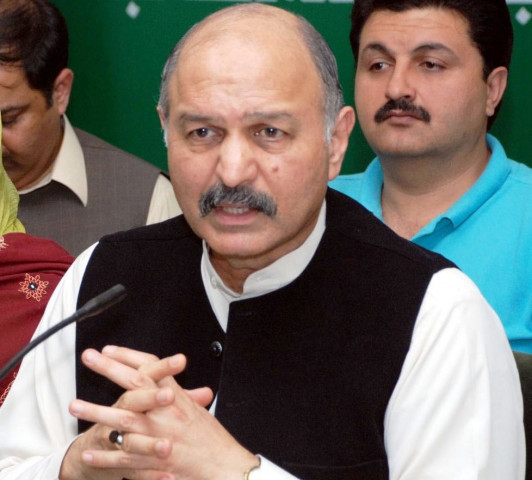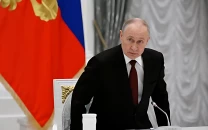Analysis: What does transition in China mean for Pakistan?
The party congress, held every 5 years, brings together 2,000 top leaders to decide on future policy and leadership.

Analysis: What does transition in China mean for Pakistan?
The party congress, held every 5 years, brings together 2,000 top leaders to decide on future policy and leadership. Significantly, the current Congress will select a new party boss, 59-year-old Xi Jinping, son of a prominent Communist Party revolutionary and reformer who was purged by Chairman Mao during the Cultural Revolution and rehabilitated later by Deng Xiaoping.
When his father was removed from office, Xi Jinping spent seven years in the countryside for ‘ideological reorientation’, living and working with peasants. Later, Xi Jinping rose to become a successful chief executive of two coastal provinces of China, marrying a famous artist and a major general in the People’s Liberation Army.
Last year, I had the privilege of an hour-long meeting with Xi Jinping at the Great Hall of the People in Beijing. Speaking without notes in an uncharacteristically candid manner, he modestly laid out his largely economic vision of China for the next 50 years: prosperity for the people, stability at home and peace abroad.
Unlike the past, the Communist Party chief is now a first among equals, presiding over a collective leadership of 9 (or 7, as it may be decided today) persons, members of the apex Standing Committee formed out of the 25 member Political Bureau which, in turn, is elected from amongst 350 members of the Party’s Central Committee.
Under Xi Jinping, China will face challenges in economy, politics and foreign affairs: a growing wealth gap, combating corruption which President Hu Jintao termed in his opening day speech ‘fatal for the nation,’ and managing China’s rise without irking other Asian countries, or a cautious West.
Relevance to the region
On the eve of the party congress, visits by top leaders of China to Afghanistan and Pakistan indicate both the centrality of this region for China, and the paramount importance of security and strategic issues on its north-west. Proactive diplomacy apart, the region will also see China’s ‘soft power’ – culture, media, language and education – being exuded in a more robust manner to counter what many view in Beijing as a Washington-driven containment strategy with India roped in as its ‘silent partner.’
While Pakistan’s importance for China has increased lately as it continues to be a window to the Muslim World, serving as its ‘reliable rear’ by protecting China’s ‘soft southern underbelly’ (Tibet and Xinjiang), Pakistani policy-makers will have to fast-track their homework in three areas that could retard the growth of Pakistan-China relations.
First, bureaucratic red tape and allegations of corruption, which have successfully managed to scuttle economic ties with Chinese companies pulling out on this count, as happened on the Thar Coal project in 2004 or the Nandipur power plant earlier this year.
Second, security of the 15,000 Chinese technicians, experts and engineers working on 130 projects in Pakistan, given recurring incidents of kidnapping and killing of Chinese experts. A major Chinese investment project on energy in Sind, said to be in the vicinity of $19 billion, was called off on security grounds.
Third, Beijing feels roots of violent extremism in Xinjiang often have footprints traced to Afghanistan and Waziristan.
Finally, Xi Jinping’s China will be a more assertive China which has arrived naturally in the international stage, with its rise being viewed as part of the emerging “Asian Century.” This is a China which will no longer accept being pushed around and which sees its peaceful rise as an historical reassertion of global power realities that existed 250 years ago.
Mushahid Hussain Syed is a Senator, and Chairman Pakistan-China Institute, a non-governmental, non-partisan and non-political think tank that aims to promote, strengthen and expand Pak-China relations.
Published in The Express Tribune, November 14th, 2012.



















COMMENTS
Comments are moderated and generally will be posted if they are on-topic and not abusive.
For more information, please see our Comments FAQ